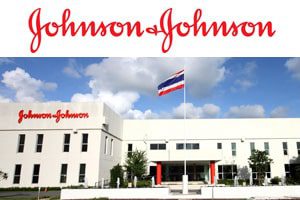
Johnson & Johnson subsidiary, DePuy Orthopaedics, is expected to pay at least $2.47 billion to settle thousands of lawsuits over its recalled ASR metal-on-metal hip implant devices. The settlement could reach up to $4 billion. Experts say that the likely slip in consumer confidence will be greater. For instance, James Abruzzo, co-director of the Institute […]
 Johnson & Johnson subsidiary, DePuy Orthopaedics, is expected to pay at least $2.47 billion to settle thousands of lawsuits over its recalled ASR metal-on-metal hip implant devices. The settlement could reach up to $4 billion.
Johnson & Johnson subsidiary, DePuy Orthopaedics, is expected to pay at least $2.47 billion to settle thousands of lawsuits over its recalled ASR metal-on-metal hip implant devices. The settlement could reach up to $4 billion.
Experts say that the likely slip in consumer confidence will be greater. For instance, James Abruzzo, co-director of the Institute for Ethical Leadership at the Rutgers Business School, told NJBiz that J&J’s actions did not meet its “credo,” which promises to place “doctors, nurses, patients, mothers and fathers” above other stakeholders, such as employees, communities, and stockholders. ”I tried to match up what their actions have been over the last couple of years, at least what I have read, against their credo, and there seems to be a disconnect between the he two,” Abruzzo noted, also pointing out that had J&J “thought first and foremost about their patients, probably they would have not waited to be sued before they took some action.”
Michael Cherenson, vice president of Success Communication in Livingston, who is also a past president of the Public Relations Society of America, also feels J&J “came up short.” In fact, Cherenson compared the health care giant’s reaction to how it handled the 1980s Tylenol-tampering debacle, for which the company was broadly praised. “In the Tylenol case, they acted quickly and decisively to correct the problem,” Cherenson said. “In this instance, they didn’t act decisively: Once they found a problem, they didn’t correct it quickly. That is a betrayal of trust, and I think it’s going to take some time for them to rebuild trust,” Cherenson said of the ASR fiasco.
According to NJBiz, the recently announced settlement encompasses some 800,000 patients who participated in a hip replacement program, and allows some $250,000 per patient. The size of that settlement is worrisome, said Rutgers law professor, Michael Carrier. “This is a pretty big settlement in terms of the amount of money J&J is willing to pay,” he said. “They want to get this behind them. By giving people who are affected a pot of money so they can feel like they have been made whole, that removes a potential thorn in their side in future years,” he added, according to NJBiz.
Yet, the impact might differ. “It is almost as if they are admitting they were wrong, and the concern is that, in the future, perhaps patients won’t consider J&J as reputable as their competition,” Carrier told NJBiz.
In August 2010, the DePuy unit recalled 93,000 ASR hip implants worldwide. At that time, the firm said that 12 percent of the devices failed within five years. Internal J&J documents revealed that 37 percent failed after 4.6 years
“The U.S. settlement program provides compensation for eligible patients without the delay and uncertainty of protracted litigation,” the DePuy unit said in a statement. DePuy indicated that some lawsuits remain pending in the United States and it will continue to fight them.
Mahmud Hassan, professor of finance and economics at Rutgers Business School, told NJBiz, “I don’t think this is the end of the story. More litigation is still outstanding.” J&J needs to get the financial impact of the issue handled, “so that is does not have a ripple effect on other divisions and products.” Abruzzo pointed out that good ethics make for good business saying, “I think that probably the lesson is that sticking to your ethical behavior in the end is financially the best route to go…. Because not only are they paying huge fines but their reputation and their brand are being diminished.”
In early November, J&J settled other litigation for $2.2 billion with the Department of Justice over allegations that it marketed schizophrenia drug Risperdal and other medications for off-label uses that were not approved by the U.S. Food and Drug Administration (FDA).


